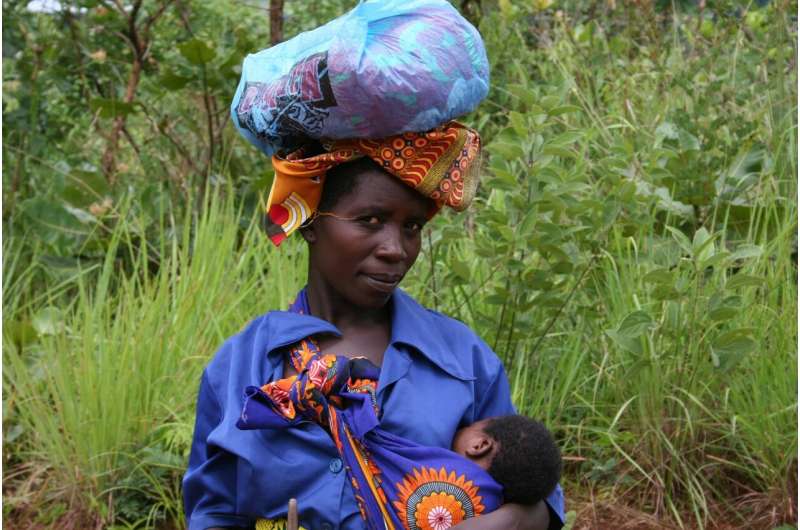Global Study Reveals Widening Scale of Infant Malnutrition, Urging Immediate Action

A new global study uncovers the widespread and alarming extent of malnutrition among infants under six months, calling for immediate health interventions to save millions of vulnerable lives.
Recent research highlights a significant and often overlooked health crisis: malnutrition among infants under six months is more widespread than previously believed, especially in low- and middle-income countries (LMICs). Analyzing data from over 50,000 children across 56 nations, the study estimates that over 10 million infants are underweight, with many exhibiting signs of wasting, stunted growth, or low birth weight.
Published in BMJ Global Health and led by researchers from the London School of Hygiene & Tropical Medicine (LSHTM) and the Emergency Nutrition Network (ENN), the study utilized Demographic and Health Surveys (DHS)—comprehensive, nationally representative household data collected periodically across LMICs. The surveys provided detailed measures of infant weight, length, age, and birth weight.
Findings reveal alarming rates: 17.4% of infants under six months are classified as underweight, 15.5% suffer from wasting, nearly 20% are stunted, and 15% were underweight at birth. When extrapolated to the global population of LMICs, these figures suggest approximately 10.3 million infants are underweight, with millions more experiencing wasting and stunting.
Marko Kerac, LSHTM's Clinical Associate Professor and lead author, emphasized the deadly toll of malnutrition, which accounts for around 45% of child deaths worldwide, totaling about 2.3 million in 2022—equating to more than 6,000 deaths daily. He criticizes the silence surrounding these figures and stresses the importance of accessible data like DHS for tracking progress and informing interventions.
Kerac advocates for heightened focus on malnutrition, calling for stronger support from organizations such as WHO and UNICEF, as well as national governments, to improve treatment and prevention strategies for this vulnerable group. Malnutrition in infants not only endangers immediate health but also predisposes them to long-term health issues, including non-communicable diseases like heart disease, with some effects potentially passing across generations.
Marie McGrath, ENN's Technical Director and co-author, underscores the emotional impact behind the statistics—each data point represents a suffering infant and distressed families. She urges health systems worldwide to enhance growth monitoring and early interventions, especially during critical early life windows like the six-week vaccination visit.
The study notes some limitations, including potential underestimation of malnutrition's true scope due to unavailable data on other indicators such as mid-upper arm circumference or edema, and the age of some surveys. The researchers propose that underweight scores—measuring weight-for-age—may be more reliable indicators of malnutrition compared to traditional measures, aligning with recent WHO guidelines that recommend incorporating underweight assessments into infant nutrition support.
Overall, this research calls for urgent global action to address infant malnutrition, emphasizing that early detection, targeted support, and sustained investments in health services are vital to reversing this critical trend.
For more information, refer to the original study: Marko Kerac et al., "Malnutrition in infants aged under 6 months: prevalence and anthropometric assessment – analysis of 56 low- and middle-income country DHS datasets," BMJ Global Health (2025). source: https://medicalxpress.com/news/2025-05-malnutrition-infants-bigger-problem-previously.html
Stay Updated with Mia's Feed
Get the latest health & wellness insights delivered straight to your inbox.
Related Articles
Children's Immune Systems Uncover New Antibody Targets for Dengue Vaccine Development
New research reveals how children's immune responses can inform the development of more effective dengue vaccines by targeting specific protective antibodies.iense
Understanding Normal Pressure Hydrocephalus: Insights from Billy Joel's Diagnosis
Learn about normal pressure hydrocephalus, its symptoms, causes, and treatments, with insights from Billy Joel's recent diagnosis and treatment at UVA Health.
Common Lung Cancer Symptom Medication May Reduce Effectiveness of Immunotherapy
New research shows that corticosteroids used to manage lung cancer symptoms may reduce the effectiveness of immunotherapy treatments. Learn how steroid use impacts immune response and patient outcomes.



